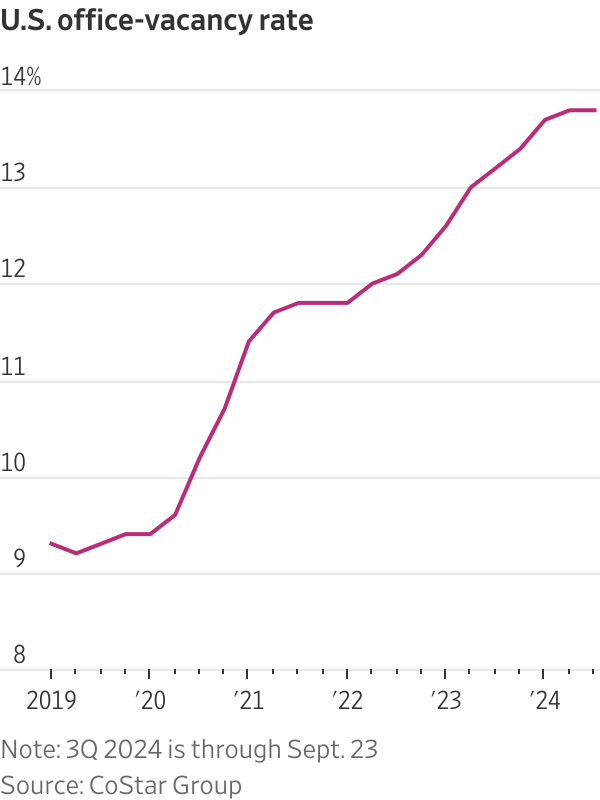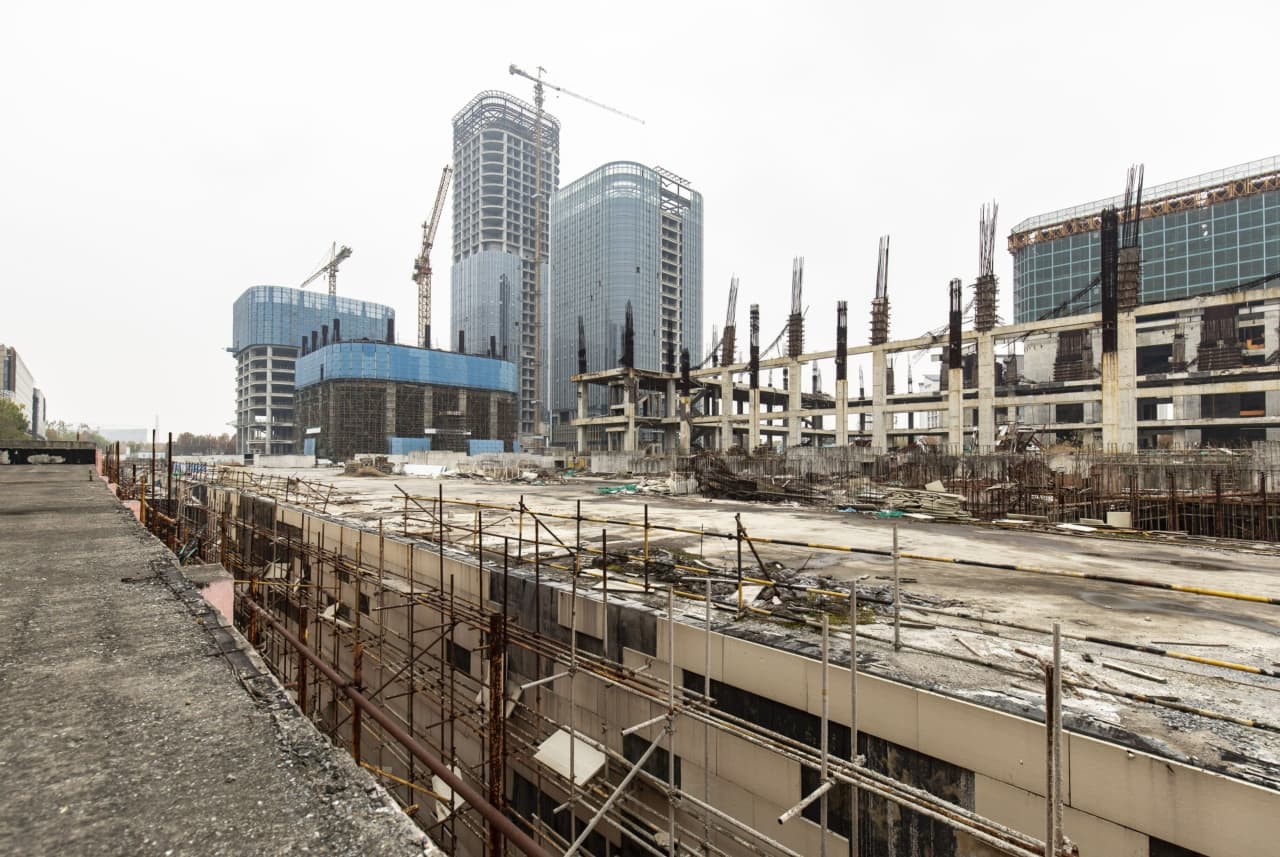About the author: Desmond Lachman is a senior fellow at the American Enterprise Institute. He was previously a deputy director in the International Monetary Fund’s Policy Development and Review Department and the chief emerging market economic strategist at Salomon Smith Barney.
Today, a Hong Kong court ordered the liquidation of Evergrande, a Chinese company that was one of the world’s largest property developers. After years of fruitless negotiations between the company and its creditors over the restructuring of its $300 billion debt mountain, a Chinese court said that “enough was enough.” In a blow to an already troubled Chinese housing market, it ordered that the company’s assets be liquidated to pay back its creditors.
How mainland China handles Hong Kong’s court order could have major implications for Chinese property prices and foreign investor confidence. If it enforces the court’s order, that could see an acceleration in Chinese home-price declines by adding to supply in an already glutted market. It could also heighten social tensions by disappointing around 1.5 million Chinese households who have put down large deposits for homes that are yet to be completed.
If it ignores the Hong Kong court’s order, it risks dealing a further blow to waning investor confidence. Questions would arise about China’s willingness to abide by the rule of law and to offer a safe economic environment for investors.
The Evergrande liquidation comes at an awkward time for the Chinese economy. It is already in deep trouble and could be headed for a Japanese-style lost economic decade. The news also suggests that China will disappoint the consensus view that the Chinese economy is headed for only a minor economic slowdown this year. This could have major implications for the U.S. and world economic outlook, considering that China is the world’s second-largest economy and until recently was its main engine of economic growth.
Even before Evergrande’s liquidation order, a whole set of indicators suggested that the former Chinese economic growth model was dead. Chinese home prices have been falling for more than a year; both wholesale and consumer prices have been falling; stock prices have plummeted as foreign investors have taken fright; and youth unemployment has risen to around 20%.
There have also been questions about President Xi Jinping’s economic stewardship. First, his disastrous zero-tolerance Covid policy contributed to the country’s slowest economic growth in 30 years. Now his increased economic intervention is undermining the underpinnings of the Chinese economic growth miracle unleashed by Deng Xiaoping’s economic reforms in the 1980s.
Chinese stocks rose last week on news that authorities are taking steps to stimulate the economy. But anyone thinking that the Chinese economy will respond favorably to yet another round of policy stimulus has not been paying attention to the size of that country’s housing and credit market bubble that has now burst. Nor have they been paying attention to the troubling degree to which that country’s economy has become unbalanced.
According to Harvard’s Ken Rogoff, the Chinese property market now accounts for almost 30% of that country’s GDP. That is around 50% more than that in most developed economies. Meanwhile, over the past decade Chinese credit to its non financial private sector expanded by 100% of GDP, according to the Bank for International Settlements. That is a larger rate of credit expansion than that which preceded Japan’s lost economic decade in the 1990s and that which preceded the 2008 bursting of the U.S. subprime and housing market.
The overall Chinese economy is highly unbalanced in the sense that it has become overly reliant on investment demand. The Chinese investment-to-GDP ratio is over 40%, according to the Organization for Economic Cooperation and Development. That’s sharply higher than the more normal 25% ratio in most other developed and mid-sized emerging market economies.
The consensus forecast is that Chinese economic growth this year will continue at a 5% clip. Anyone relying on that forecast should reflect on the many failures by the U.S. Federal Reserve and other central bankers to foresee the grave problems of the subprime housing market in the U.S. in early 2008. It would seem that most economists are downplaying indications of major Chinese economic problems that are plain sight. Chinese economic problems could unleash serious deflationary forces for the U.S. and global economy. The Federal Reserve would be ignoring them at its peril.
Guest commentaries like this one are written by authors outside the Barron’s and MarketWatch newsroom. They reflect the perspective and opinions of the authors.
 Copyright 2020, Dow Jones & Company, Inc. All Rights Reserved Worldwide. LEARN MORE
Copyright 2020, Dow Jones & Company, Inc. All Rights Reserved Worldwide. LEARN MORE
What a quarter-million dollars gets you in the western capital.
Alexandre de Betak and his wife are focusing on their most personal project yet.
New amenities, from a gym to a movie theatre, and a good commuter location filled this suburban office tower
Manhattan’s office-vacancy rate climbed to more than 15% this year, a record high. About 80 miles away in Philadelphia, occupancy also is at historically low levels. But a 24-storey office tower located between the two cities has more than doubled its occupancy over the past five years.
Developer American Equity Partners bought the New Jersey office tower, known as 1 Tower Center, for $38 million in 2019. At the time, the 40-year-old building felt dated. It had no gym, tenant lounge or car-charging stations. The low price enabled the firm to spend more than $20 million overhauling and luring tenants to the 435,000-square-foot property.
Now, the suburban building is nearly fully leased at competitive rents, mopping up tenants from other buildings after the owner added a new lobby, movie theatre, golf simulator, fitness centre and a tenant lounge featuring arcade games and ping-pong tables.
“Our tenants told us what they needed in order to fill up their offices,” said David Elkouby , a co-founder of American Equity, which owns about 4 million square feet of New Jersey office space.

The new owner also liked the location at the 14-acre hotel and conference-centre complex, off the New Jersey Turnpike’s Exit 9 in East Brunswick. The site is a relatively short commute for millions of workers in central New Jersey and is passed by 160,000 vehicles daily.
The property’s turnaround shows how office buildings can thrive even during dismal times for most of the U.S. office market, where vacancies remain much higher than pre pandemic.
Success often requires an ideal location—one that shortens the commute time of employees used to working at home—and the sort of upgrades and amenities companies say are necessary to lure employees back to the workspace.
One Vanderbilt, a deluxe office tower with a Michelin-star chef’s restaurant and plenty of outdoor space in Midtown Manhattan, is fully leased while charging some of the highest rents in the country.
The 11-story Entrada office building, in Culver City, Calif., is making the same formula work on the other coast. It opened two years ago with a sky deck, concierge services and recessed balconies. A restaurant is in the works. The owner said this month that it has signed three of the largest leases in the Los Angeles area this year.
1 Tower Center shows how the strategy can be effective even in less glamorous suburban locations. The tower is prospering while neighbouring buildings that are harder to reach with outdated facilities and poor food options struggle to fill desks even at reduced rents.
The recent interest-rate cut and reports that some big companies such as Amazon .com are re-instituting a five-day office workweek have raised hopes that the office market might be getting closer to turning.
But with more than 900 million square feet of vacant space nationwide and remote work still weighing on office demand, more creditors are seizing properties that are in default on debt payments.
Rates are still much higher than they were when tens of billions of dollars of office loans were made, and much of that debt is now maturing. The recent interest-rate cut doesn’t mean “office-sector woes are now over,” said Ermengarde Jabir, director of economic research for Moody’s commercial real-estate division.
Lenders are dumping distressed properties at steep discounts to what the buildings were worth before the pandemic. Some buyers are trying to compete simply by cutting their rents.
“Most owners don’t have the wherewithal to do what is required,” said Jamie Drummond, the Newmark senior managing director who is 1 Tower Center’s leasing agent. “Owners positioned to highly amenitise their buildings are the ones who are successful.”
HCLTech, a global technology company, illustrates the appeal. It greatly expanded its presence in New Jersey by moving this year to a 40,000-square-foot space designed for its East Coast headquarters at 1 Tower Center.
The India-based company said it was drawn to the building’s amenities and design. That made possible a variety of workspaces for employees, from quiet nooks to an artificial-intelligence lab. “You can’t just open an office and expect [employees] to be there,” said Meenakshi Benjwal , HCLTech’s head of Americas marketing.
HCLTech also liked the location near the homes of its employees and clients in the pharmaceutical, financial-services and other businesses.
Finally, it didn’t hurt that the building is a short drive from nearby MetLife Stadium. The company has a 75-person suite on the 50 yard line where it entertains clients at concerts and National Football League games.
“All of our clients love to fly from distant locations to experience the suite and stadium,” Benjwal said.















